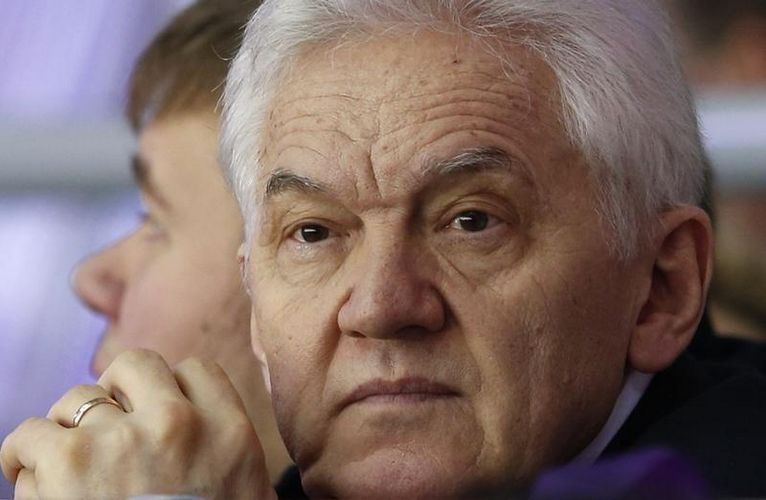The future of two syndicated loans, for oil trading firm Gunvor and petrochemicals firm Sibur, were thrown into doubt last week after Gennady Timchenko appeared on the US sanction list over Russia’s involvement in Crimea and Ukraine.
Timchenko is one of Gunvor’s founders and a major shareholder in Sibur. The companies had been preparing to launch a roughly US$665m dual-currency loan refinancing and a five-year loan of up to US$1bn, respectively.
The US extended visa bans and asset freezes on some of Russian President Vladimir Putin’s closest political and business allies on Thursday. Timchenko, a major oil and commodities trader, appeared on the 20-name blacklist that also included Kremlin banker Yuri Kovalchuk (and his Bank Rossiya), as well as Putin’s chief of staff and his deputy, the head of military intelligence and a railways chief.
The sanctions came just days after Gunvor informed existing lenders of a schedule of roadshows for the new loan, which refinances a US$850m dual-tranche facility signed in June 2013. Some lenders say they are putting the deal on hold until the situation, for which they have seen no precedent, becomes clearer.
“Normally, if the pricing is OK we will maintain our commitment in the refinancing. But if there is any sanction involved, we may not be able to join,” said a lender who participated in Gunvor’s earlier deals.
Existing lenders on Gunvor’s June 2013 loan that is being refinanced are mostly based in Singapore and Hong Kong.
“If the company is on the sanction list, we cannot deal with it any more. We have to follow the regulation from the Monetary Authority of Singapore,” said a Singapore-based loans banker directly involved in the refinancing.
“Normally, if the pricing is OK we will maintain our commitment in the refinancing. But if there is any sanction involved, we may not be able to join”
In the years since 2007, the MAS has issued sanction regulations on North Korea, Libya, Somalia, Eritrea and Iran.
In Hong Kong, it is unclear whether non-US banks have to comply with the US Treasury’s Office of Foreign Assets Control sanctions, but in practice the Hong Kong Monetary Authority requires all financial institutions under its supervision to screen their transactions against both United Nations and OFAC sanction lists.
In a statement explaining the sanctions, the US Treasury said: “Gennady Timchenko is one of the founders of Gunvor, one of the world’s largest independent commodity trading companies involved in the oil and energy markets.”
“Timchenko’s activities in the energy sector have been directly linked to Putin. Putin has investments in Gunvor and may have access to Gunvor funds.”
The Swiss-based oil trading company said on Thursday that Timchenko had sold his stake in Gunvor to its chief executive Torbjorn Tornqvist on March 19, anticipating potential economic sanctions. The company’s regional chief finance officer for Asia-Pacific, Muriel Schwab, declined to comment.
Sibur stalled
Prior to the sanctions, Sibur was the only Russian loan in the market that looked likely still to go ahead.
“Sibur has been moving along nicely. It is at the documentation stage and everyone seems to be in place,” said one banker close to the deal. “We don’t know yet if it will be impacted by the sanctions on Timchenko.”
A second banker close to the deal said: “The Timchenko situation is certainly a twist. We are in watch-and-wait mode.”
Russia’s largest iron ore producer, Metalloinvest, signed a US$1.15bn pre-export deal early last week, having benefited from being at an advanced stage when the crisis struck. Talks on all other loans have ground to a halt (see Loans section).
Sibur was not available for comment.
Bond moves
In the bond market, the release of the new sanctions list led Sibur’s outstanding 2018 note issue to fall more than five points on Thursday. But it recovered on Friday to be up two points on the day, as of 1pm UK time.
The US moves and the related decisions by Fitch and S&P to revise their outlooks on Russia’s debt to negative also led the country’s bond curve to fall nearly a point in early trading on Friday, though prices began to recover as the morning progressed. Both agencies maintained their BBB ratings.
Meanwhile, Russian Finance Minister Anton Siluanov confirmed on Friday that the country might cancel its foreign borrowing plans for 2014 in a move that could come as a relief to Western banks worried about pitching for a proposed sovereign bond against the troubled backdrop. Siluanov also said that Western sanctions could raise Russia’s borrowing costs.
The threat of ratings downgrades and the imposition of more sanctions provide the biggest challenges to the Russian credit story since 2008, according to Tim Ash, head of EM (ex-Africa) research at Standard Bank.
In 2008, the sovereign suffered a one-to-two-notch downgrade and lost more than a third of its FX reserves. “Importantly, at present the Russian economy is in a much weaker spot – back in H1 2008 it had been flying high with plus 6% real GDP growth and soaring oil/commodity prices. Now the economy is struggling to grow much above 1%, even with oil prices at over US$100 per barrel for Urals,” said Ash.
“A general message from the US … was that we are serious about this, and will be acting to tighten the sanctions regime around Russia over the coming days if we do not see de-escalation from Russia,” said Ash.
Russia’s deputy foreign minister, in turn, said it was preparing for reciprocal sanctions against the West. “So if Bank Rossiya was sanctioned for being the Kremlin’s bank, who might be deemed the White House bank?” asked Ash.
